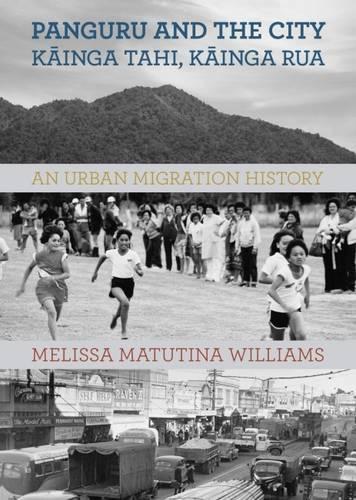
Panguru and the City Kainga Tahi, Kainga Rua: An Urban Migration History
(Paperback)
Publishing Details
Panguru and the City Kainga Tahi, Kainga Rua: An Urban Migration History
By (Author) Melissa Matutina Williams
Bridget Williams Books
Bridget Williams Books
17th February 2015
New Zealand
Classifications
Tertiary Education
Non Fiction
History
Indigenous peoples
Short-listed for W. H. Oliver Prize for the Best Book on New Zealand History 2015
Physical Properties
Paperback
300
Width 185mm, Height 260mm
Description
Travelling from Hokianga to Auckland in the middle decades of the twentieth century, the people of Panguru established themselves in the workplaces, suburbs, churches and schools of the city. Melissa Matutina Williams writes from the heart of these communities. The daughter of a Panguru family growing up in Auckland, she writes a perceptive account of urban migration through the stories of the Panguru migrants. Through these vibrant oral narratives, the history of Maori migration is relocated to the tribal and whanau context in which it occurred. For the people of Panguru, migration was seldom viewed as a one-way journey of new beginnings; it was experienced as a lifelong process of developing a 'co-existent home place' for themselves and future generations. Dreams of a brighter future drew on the cultural foundations of a tribal homeland and past. Panguru and the City: He Kainga Rua traces their negotiations with people and places, from Auckland's inner-city boarding houses, places of worship and dance halls to workplaces and Maori Affairs' homes in the suburbs. It is a history that will resonate with Maori from all tribal areas who shared in the quiet task of working against state policies of assimilation, the economic challenges of the 1970s and neoliberal policies of the 1980s in order to develop dynamic Maori community sites and networks which often remained invisible in the cities of Aotearoa New Zealand.
Author Bio
Melissa Matutina Williams (Te Rarawa, Ngati Maru) teaches history at the University of Auckland. Based on her PhD research, 'Panguru and the City: He Kainga Rua' draws on the oral narratives of the Te Rarawa people who joined with many other Maori in mid-twentieth century migrations to Aotearoa New Zealand's cities. Melissa Williams' scholarship has been acknowledged with honours and awards including the Kate Edger Educational Charitable Trust / Dame Joan Metge Post- Doctoral Research Award and a Copyright Licensing New Zealand Writers' Award. She has published and presented a number of papers in the field of indigenous studies, in Aotearoa New Zealand and internationally.
